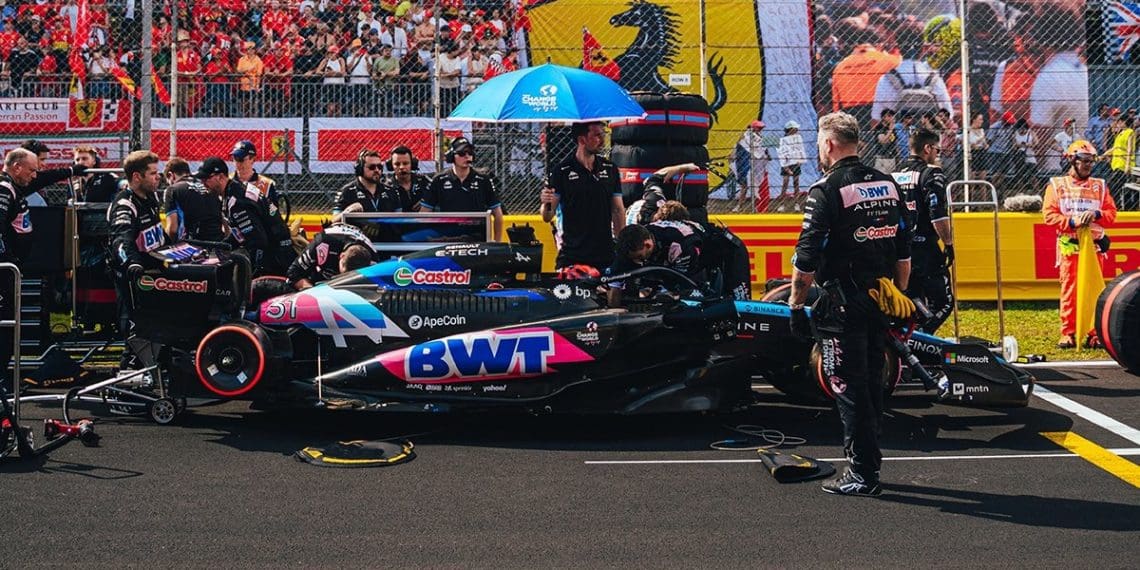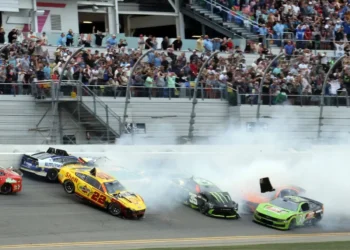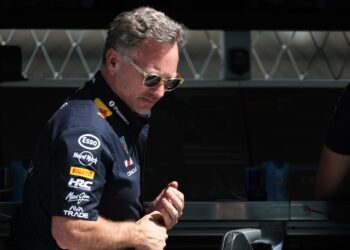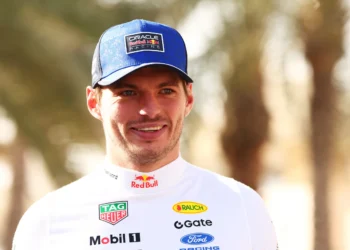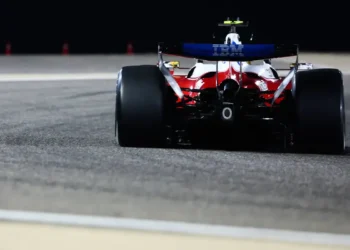Renault’s ambitious dream of becoming the “French Ferrari” in Formula 1 is collapsing, and CEO Luca de Meo is confronting a harsh reality. The manufacturer’s decision to axe its works team and engine program after 2025 reveals a desperate attempt to salvage a failing vision. De Meo, speaking candidly, admitted that his grand ambition for the Alpine-branded team has hit a wall, requiring a drastic and fast rethinking of strategy to stay afloat in the sport.
The idea was clear: Alpine, Renault’s F1 brand, was supposed to become a symbol of French motorsport excellence. The team’s all-French driver lineup of Esteban Ocon and Pierre Gasly was meant to rally national pride. Instead, it has been a disaster, with the drivers crashing into each other and French companies unwilling to provide the financial backing needed to succeed. Alpine’s once-bold image has faded, leaving De Meo with an uncompetitive and unsustainable project.
“A works engine isn’t a priority anymore,” De Meo declared, reflecting a radical shift in the team’s philosophy. He has accepted that, in today’s F1, owning a successful team is more valuable than owning an engine program. The CEO’s new focus? Cutting costs and seeking commercial success, even if it means abandoning the engine project he once championed.
Renault is now looking for shortcuts—words that should raise alarm bells for anyone familiar with the cutthroat world of F1. De Meo’s admission that Alpine has become “invisible” and is at risk of completely deflating within two years shows his urgency to act. “We’ve been on a downward slope for three seasons,” he said, acknowledging that it’s time for a shake-up, both in finances and performance.
Though De Meo calls the decision to scrap the engine program “heartbreaking,” there’s an underlying blame game in his statements. He hints that his vision failed because others didn’t deliver, pointing to the turnover in team leadership as evidence of those mistakes. Enter Oliver Oakes and Flavio Briatore, the new team leaders tasked with turning things around—a move that suggests desperation as much as hope.
But what happens if Alpine transitions to a customer team and still struggles? De Meo’s “shortcuts” hint at impatience and risk a quick-fix mentality—one that has historically doomed F1 projects. Renault, with its turbulent F1 history, should know better than to think success can be bought overnight. The decision to become a Mercedes customer is a concession that owning a competitive team is easier and cheaper than running an independent works program. Essentially, it’s Renault admitting defeat in its bid to be a major F1 powerhouse.
De Meo highlighted the stark contrast between Alpine and its new engine supplier: while Viry-Chatillon employs 340 people, Mercedes has 900 dedicated to its engine program. Rather than compete, Renault is scaling back, signaling it doesn’t believe the benefits of running its own engine outweigh the costs. However, De Meo insists that the Enstone base will receive new investment, suggesting that Renault isn’t solely relying on an engine switch to transform its fortunes.
This new strategy is unambitious but realistic, prioritizing financial stability over national pride. De Meo is right in stating that the old model of selling cars based on F1 victories isn’t as effective anymore. But he acknowledges that F1 success still brings commercial gains, especially under the cost cap, where teams can profit and reinvest—a cycle Alpine desperately needs to establish.
Abandoning the “French Ferrari” dream may not sound patriotic, but for Alpine, it’s about survival. Moving away from a costly and underperforming engine program could free the team from corporate Renault’s interference, giving Briatore and Oakes the best shot at reshaping the team’s future. Whether this gamble pays off remains to be seen, but it’s clear that Renault is taking a risky shortcut to remain in F1’s game.

